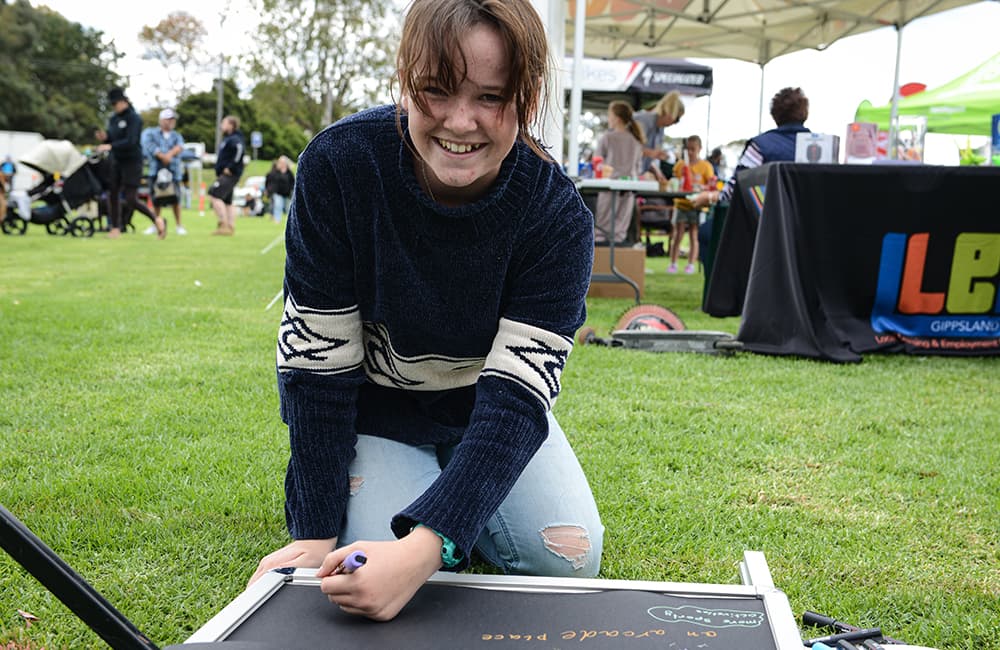At the end of the program, children and young people design
events to communicate their recommendations to the decision-makers and to receive feedback on their ideas. The communication activities chosen by the children and young people include presenting their ideas in video and story book formats, compiling reports for relevant community recovery groups, holding meetings with local councils to present their recommendations in person, and hosting a photography exhibit.

Children in East Gippsland share their ideas for improving their community.
Photo: Mike Chilton/Save the ChildrenHow we know we’re making a difference
There is good evidence that children’s involvement in disaster response:
- Improves the quality and effectiveness of emergency planning, especially at a local level, by introducing fresh and new ideas, perceptions and experiences.
- Empowers children to champion change in their home and local community, communicating risk, persuading others to act and ensuring resources are targeted and effective for their peers.
- Boosts individual protective factors for children, like increased confidence, self-esteem, self-efficacy and positive coping skills.
- Increases accountability to children and young people.
We must ensure that children and young people feel valued and respected. One way to achieve this is by creating opportunities for children and young people to express their thoughts, actively listening to them, and ultimately acting upon their recommendations and ideas. By taking the time to reflect on the recommendations and ideas, we can be part of supporting children and young people to feel safe and supported before, during and after emergencies, as well as in their everyday life.
“[The decision makers] were so interactive and so wonderful to speak to and so engaged in our presentation,” Amber told us after her group’s presentation to local stakeholders.
“It made us feel really respected and what we had to say was important, and they really showed us that.”
Our Voice is proudly supported by the Paul Ramsay Foundation.